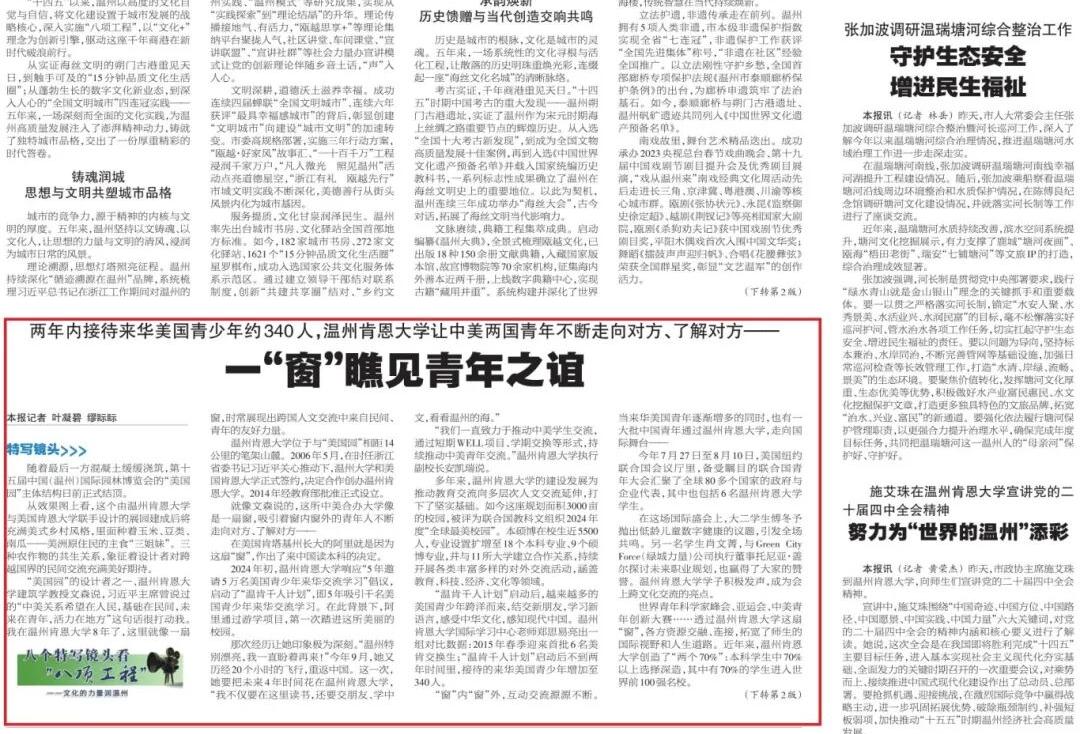
Hamza Djigal
-
Position:Assistant Professor of Computer Science
-
College:College of Science, Mathematics and Technology
-
Office:CSMT 440
-
E-mail:
Education background
October 2006- August 2009: B.S. in Mathematics
Cheikh Anta Diop University of Dakar, Senegal
October 2010- August 2011: Master in Algebra and Geometry Application (Specialty Cryptography), Cheikh Anta Diop University of Dakar, Senegal
September 2012-June 2014: M.S. in Software Engineering
Central China Normal University, Wuhan, China
Ph.D. in Computer Science and Technology
Hohai University, Nanjing, China
Teaching Experiences
• Fall 2023: CPS 2231 (Computer Programming), (2 Sections) to undergraduate students.
• Fall 2023: CPS 4883 IND01 (Cloud Computing)
• Spring 2024: CPS 2231 (Computer Programming), (2 Sections) to undergraduate students.
• Spring 2024: CPS 3320 (Python Programming) to undergraduate students.
• Spring 2024: CPS 3962 (Obj Oriented Anal & Design), (2 sections) to undergraduate students.
• Fall 2024: CPS 2231 (Computer Programming), (2 Sections) to undergraduate students.
• Fall 2024: CPS 3250 (Computer Operating Systems), (2 Sections) to undergraduate students.
• Fall 2024: CPS 5745 (Interact Info Visualization) to Graduate students.
• Spring 2025: CPS 3962 (Obj Oriented Anal & Design), (2 sections) to undergraduate students.
• Fall 2025: CPS 2231 (Computer Programming), (2 Sections) to undergraduate students.
• Fall 2025: CPS 3250 (Computer Operating Systems), (2 Sections) to undergraduate students.
Online Tutorial on Programming and Academic Research
YouTube Channel: https://www.youtube.com/@djigalacademy
Employment History
August 2023 - to date
Assistant Professor in the Department of Computer Science at Wenzhou-Kean University.
June 2021– June 2023
China Postdoc Fellow in Computer Science and Technology, Jiangsu Key Laboratory of Big Data Security and Intelligent Processing, Nanjing University of Posts and Telecommunications.
January 2015– May 2016
Lecturer in the Department of Mathematics and Computer Science at Cheikh Anta Diop University of Dakar.
Research interests
My current research interests mainly include Distributed Systems, Cloud Computing, Mobile Edge Computing (MEC), and Reinforcement Learning. Particularly, I am interested in algorithms development for resource management in MEC networks. My recent work mainly focus on the following research issues:
• AI-Driven Resource Allocation in Edge and Cloud Computing
• Offloading and Execution of Large Language Models (LLMs) in MEC
• Task Offloading and Scheduling in MEC
• IoT Applications and Scientific Workflow
• Federated Learning
• UAV-Assisted Computing for IoT Applications
Publications
Summary of my publications: As first author and corresponding author, I have published more than 16 articles in high-quality journals and conferences such as IEEE Communications Surveys and Tutorials (IF=46.7), ACM Computing Survey (IF=28), IEEE Transactions on Parallel and Distributed Systems (IF=6), ICPP, and IWQoS.
Citation metrics: 300 citations; h-index = 6; i10-index = 4.
Articles indexed in:
• WebofScience (SCI, ISI): https://orcid.org/0000-0003-1218-5682
• IEEE: https://ieeexplore.ieee.org/author/37086086764
• DBLP: https://dblp.uni-trier.de/pid/203/5795.html
• Google Scholar: https://scholar.google.com/citations?hl=en&user=Vw1FDkUAAAAJ
• Scopus: https://www.scopus.com/authid/detail.uri?authorId=57195539682
• ACM:https://dl.acm.org/doi/abs/10.1145/3339186.3339206
Recent publications:
Journal Articles
1. Tingting Hang, Shuting Liu, Jun Feng, Hamza Djigal, and Jun Huang. 2025. Few-Shot Relation Extraction Based on Prompt Learning: A Taxonomy, Survey, Challenges and Future Directions. ACM Comput. Surv. 58, 2, Article 40 (January 2026), 38 pages. https://doi.org/10.1145/3746281. SCI, Q1, IF=28. Corresponding author.
2. Tingting Hang, Wei Wu, Jun Feng, Hamza Djigal, and Jun Huang, “A Survey of Few-Shot Relation Extraction Combining Meta-Learning with Prompt Learning,” in Neurocomputing, Volume 647, 2025, 130534. https://doi.org/10.1016/j.neucom.2025.130534. SCI, Q1, IF=6.5. Corresponding author.
3. Hamza Djigal, Jia Xu, Linfeng Liu, and Yan Zhang, “Machine and Deep Learning for Resource Allocation in Multi-Access Edge Computing: A Survey,” in IEEE Communications Surveys and Tutorials, vol. 24, no. 4, pp. 2449–2494, Fourth Quarter 2022. https://doi.org/10.1109/COMST.2022.3199544. SCI, Q1, IF=46.7. First author.
4. Hamza Djigal, Feng Jun, Jiamin Lu, and Jidong Ge, “IPPTS: An Efficient Algorithm for Scientific Workflow Scheduling in Heterogeneous Computing Systems,” in IEEE Transactions on Parallel and Distributed Systems, vol. 32, no. 5, pp. 1057–1071, 1 May 2021. https://doi.org/10.1109/TPDS.2020.3041829. CCFA,SCI, Q1, IF=6. First and Corresponding Author.
5. Ju Chen, Jun Feng, Shenyu Zhang, Xiaodong Li, Hamza Djigal, “Robust Annotation Aggregation in Crowdsourcing via Enhanced Worker Ability Modeling,” Information Processing & Management, Volume 62, Issue 1, 2025, 103914. https://doi.org/10.1016/j.ipm.2024.103914. SCI, Q1, IF=7.4, CCF B. Co-author.
6. Muhammad, A.U., Djigal Hamza., Muazu, T. et al. “An Autoencoder-Based Stacked LSTM Transfer Learning Model for EC Forecasting,” Earth Sci Inform 16, 3369–3385 (2023). https://doi.org/10.1007/s12145-023-01096-3. SCI, Q2, IF=2.7. Co-author.
Conference Proceedings Articles
1. Jiao, L., Hamza Djigal, Ba, A.F., Muhammad, A.U.: “MPPTS: Multi-Factor Predictive Priority Task Scheduling Algorithm for Heterogeneous Systems,” In: Proceedings of ICA3PP 2025, Zhengzhou, China, Oct 30–Nov2, 2025. Springer, Lecture Notes in Computer Science. (Accepted, EI, CCF C). Corresponding Author.
2. Ni, X., Hamza Djigal, Ba, A.F., Muhammad, A.U.: “BUCAS: Budget Constrained Application Scheduling in IaaS Clouds,” In: Proceedings of ICA3PP 2025, Zhengzhou, China, Oct 30– Nov 2, 2025. Springer, Lecture Notes in Computer Science. (Accepted, EI, CCF C). Corresponding Author.
3. Farahbakhshian, S.F., Jun, F., Hamza Djigal, Fakhartousi, A.: “Adaptive Budget-Constrained Resource Provisioning for Workflow Scheduling in IaaS Clouds,” In: Proceedings of ICA3PP 2025, Zhengzhou, China, Oct 30– Nov 2, 2025. Springer, LNCS. (Accepted, EI, CCF C). Corresponding Author.
4. Q. Xue, Hamza Djigal, M. Cheraghy, “Performance Evaluation of Q-Learning-Based List Scheduling Algorithms in Heterogeneous Systems,” 2024 ICCC, Chengdu, China, pp. 343–350. https://doi.org/10.1109/ICCC62609.2024.10941813. (EI, Scopus). Corresponding Author.
5. Abdoul Fatakhou Ba, Yingchi Mao, Hamza Djigal, Abdullahi Uwaisu Muhammad, Evans Baidoo, “Fast Adaptive Momentum Federated Learning,” 2024 CSAI. https://doi.org/10.1145/3709026.3709049. (EI, scopus). Co-author.
6. Ba, A.F., Mao, Y., Hamza Djigal, et al., “FedQR: Communication-Efficient Federated Learning via QR Factorization,” ICONIP 2024, Springer, vol 2283. https://doi.org/10.1007/978-981-96-6951-6_30. (EI, Scopus, CCF C). Co-author.
7. A.F. Ba, Y. Mao, Hamza Djigal, A.U. Muhammad, “ProLoRA: Resource-Efficient Personalized Federated Learning for Sensor-Based Human Activity Recognition,” MSN 2024, Harbin, China, pp. 1047–1054. https://doi.org/10.1109/MSN63567.2024.00144. (EI scopus, CCF C). Co-author.
8. Hamza Djigal, L. Liu, J. Luo and J. Xu, "BUDA: Budget and Deadline Aware Scheduling Algorithm for Task Graphs in Heterogeneous Systems," 2022 IEEE/ACM 30th International Symposium on Quality of Service (IWQoS), Oslo, Norway, 2022, pp. 1-10. https://doi: 10.1109/IWQoS54832.2022.9812865. (EI Scopus, CCF B). First author.
9. Hamza Djigal, J. Feng and J. Lu, "Performance Evaluation of Security-Aware List Scheduling Algorithms in IaaS Cloud," 20th IEEE/ACM International Symposium on Cluster, Cloud and Internet Computing, Melbourne, VIC, Australia, 2020, pp. 330-339. https://doi: 10.1109/CCGrid49817.2020.00-60. (EI, Scopus, CCF C). First and Corresponding Author.
10. Hamza Djigal, Jun Feng, and Jiamin Lu., “Task Scheduling for Heterogeneous Computing using a Predict Cost Matrix”, In 48th International Conference on Parallel Processing (ICPP 2019), August 5–8, 2019, Kyoto, Japan. ACM, New York, NY, USA, 10 pages. (EI, Scopus, CCF B). First and Corresponding Author.
11. HamzaDjigal, F. Jun and J. Lu, "Secure Framework for Future Smart City," 2017 IEEE 4th International Conference on Cyber Security and Cloud Computing (CSCloud), New York, NY, USA, 2017, pp. 76-83,1. https://doi: 10.1109/CSCloud.2017.2. First and Corresponding Author.
Patent
• A Method for Scheduling Application Tasks in a System of Heterogeneous Processors, Hamza Djigal, Jia Xu, Wenbin Chen, Yimin Zhang, Xinshi Yu, Lingyun Jiang, Deqiang Li, Fu Xiao, Application No: 202211280665.3, Application Date: 2022.10.19.
• A Task Scheduling Method with Cost Budget Constraints in Heterogeneous System, Hamza Djigal, Jia Xu, Wenbin Chen, Lulu Fan, Yining Zhang, Lingyun Jiang, Weifeng Lu, Fu Xiao, Application No: 202211400617.3, Application Date: 2022.11.10
Research Grant and Scholarships
• January 2022-December 2022: National Foreign Expert Program of China under grant QN2022014001. Project title: “Research on Reinforcement Learning-Based Offloading and scheduling Mechanisms in Multi-access Edge Computing”. Amount: 200,000.0 RMB ($29,000.0). Principal Investigator
• January 2024– December 2026: Internal (Faculty/Staff) Start-Up Research Grant (ISRG). Project Title: Research on Intelligent Resource Allocation Mechanisms for Internet of Medical Things in Multi-access Edge Computing. Amount: 250000 RMB. Principal Investigator
• September 2024–September 2025: Student Partnering with Faculty (SpF). Title: Security-Sensitive Resource Allocation Mechanisms for IoT in MEC. Amount: 30000 RMB. Principal Investigator
• September 2024–September 2025: Student Partnering with Faculty (SpF). Title: Performance Analysis of SCMACellular Networks by using RIS and ML. Amount: 20000 RMB. Co-Principal Investigator
• September 2016- July 2020: China Scholarship Council, Ph.D degree.
• September 2012- July 2014: China Scholarship Council, Master degree.
Services
Professional Service:
• Reviewer for IEEE Transactions on Mobile Computing (a Q1 journal, Impact Factor 7.7, two papers reviewed a year):
• Reviewer for IEEE Access (a Q1 journal, Impact Factor 3.4, two papers reviewed a year):
• Reviewer for The Journal of Supercomputing (a Q2 journal, Impact Factor 2.5, 1 paper reviewed a year):
• Reviewer for Neural computing & applications (a Q1 journal, Impact Factor 4.5, 1 paper reviewed a year)
• IEEE Internet of Things Journal (a Q1 journal, Impact Factor 8.9, 1 paper reviewed a year).
• Conference Reviewer, EuroSys 2025 Shadow PC (Fall 2024: Reviewed 4 full research papers and provided feedback to authors.
• Technical Committee & Reviewer, CSAI 2024 (Dec 6–8, 2024, Beijing, China), 8th International Conference on Computer Science and Artificial Intelligence.
• Technical Committee Member, ICCC 2024 (Dec 13–16, 2024, Chengdu, China), 10th International Conference on Computer and Communications.
University Service:
• Students Recruitment: I contribute to the recruitment of students at Wenzhou-Kean University during 2023-2024 academic year.
• Faculty research day (2024): I have attended the faculty research day presentation.
• Faculty research day (2025): Topic presented: When and When Not to Use AI in Research: A General Decision Framework, With Comparative Insights from Computer Science and Sociology.
• World Young Scientist Summit 2023: I have attended the World Young Scientist Summit 2023 held from 2023-9-11 to 2023-9-12.
Department Service:
• Computer Club Advisor: Since 2023, co-advising monthly two-hour meetings with more than 78 students. Each session begins with an overview of club objectives, tasks, and projects, followed by group progress presentations, Q&A, and feedback.
• Chair of the Curriculum Committee: From Fall 2025 to present, responsible for leading the review, development, and assessment of departmental curricula. Oversees regular monthly committee meetings (with additional sessions as needed) and coordinates proposals for curriculum changes.
• Member of the Department Academic Committee: From Fall 2023 to Fall 2024, responsible for organizing workshops and academic meeting. Monthly meetings, with additional meetings scheduled if needed.
• Member of the Search Committee: From Fall 2025 to present, serving on the department’s faculty search committee. Participates in reviewing applications, shortlisting candidates, coordinating interviews, and providing recommendations to support hiring decisions.
• Student Advisor: Advising undergraduate and graduate students on academic planning, course selection, and career development (Fall 2023–present).
• Student Research Day: Oral Presentation Award (Luyao Jiao). “Scholarly Compass: An Intelligent Journal and Expert Recommendation System for Academic Publishing”.
Work Experiences
Consulting Services at Dakar University of Science and Technology
8 days
Description of Task undertaken:
• Assist the IT department in the process of diploma accreditation.
• Establish the cours syllabus in computer science.
JAVA JEE Architect at China Power Software
July 2018– January 2019
Description of Task undertaken during the job:
• Understand the IBM maximo EAM
• IBM maximo analysis
• IBM maximo Entity relational rata modeling
• IBM asset management
• Maximo EAM documentation writing
• Learn Activity workflow
• CPS asset management analysis
• UML design of enterprise asset management
• Asset, Work Order, Inventory modules coding and testing using Spring MVC, Hibernate, JPA, Jasper Report, UML, and MySQL.
• Write the technical documentation of the software.
Reference: China Power Software, Nanjing, Phone: 008615205161220, wechat id: eamchen
Windows server 2008 R2 Administrator at Embassy of the Republic of Senegal in the People’s Republic of China
October 2012– June 2014
Description of Task undertaken during the job:
• Monitoring and network security in Windows Server 2008
• Development of Senegalese Management System using PhP and Javascript.
Reference: Embassy of Senegal, Chaoyang District Beijing 100600, China. Tel: (+86)65325035, Fax: 65327330
E-commerce Project Manager at Guangdong Taozhenbao Technology Co., Ltd March 2014– April 2014
Description of Task undertaken during the job:
• Help programmers team (Java/PhP) for code debugging.
• Evaluation of MySql and postgresSql in terms of performance
• Evaluation of Java Enterprise Platform Technology ( trends and news tools)
• Evaluation of Glassfish, JBoss and WebLogic in terms of performance
Reference: Nicolas Luk, Taozhenbao Project Director of Jinzunrong Cosmetics. Xialiangsanshe Industrial Area, Longgui Town, Baiyun District, Guangzhou (510445) Tel: +862086297426 Email: lordluning@vip.qq.com
College Programs
- B.S. Chemistry
- B.S. Environmental Science
- B.S. Biology (Cell and Molecular Biology Option)
- B.A. in Mathematical Sciences (Data Analytics Option)
- B.S. Computer Science




